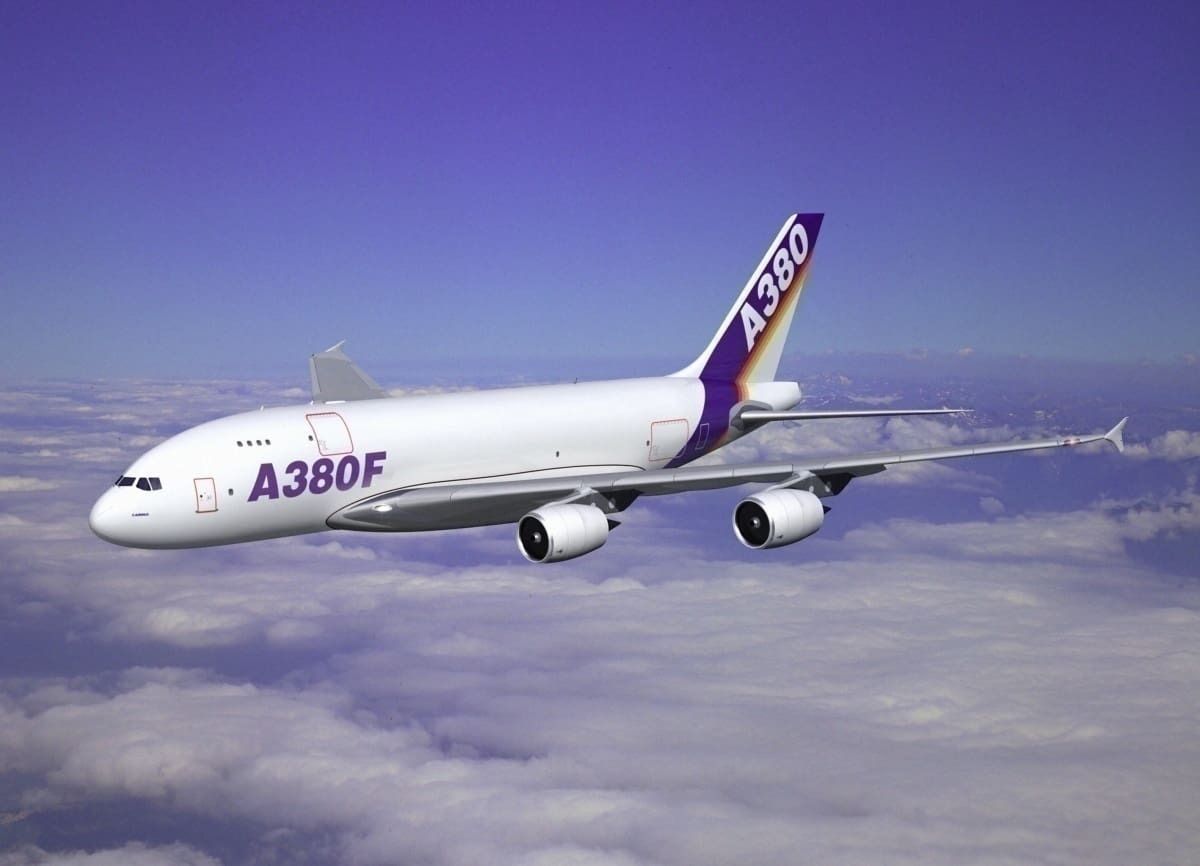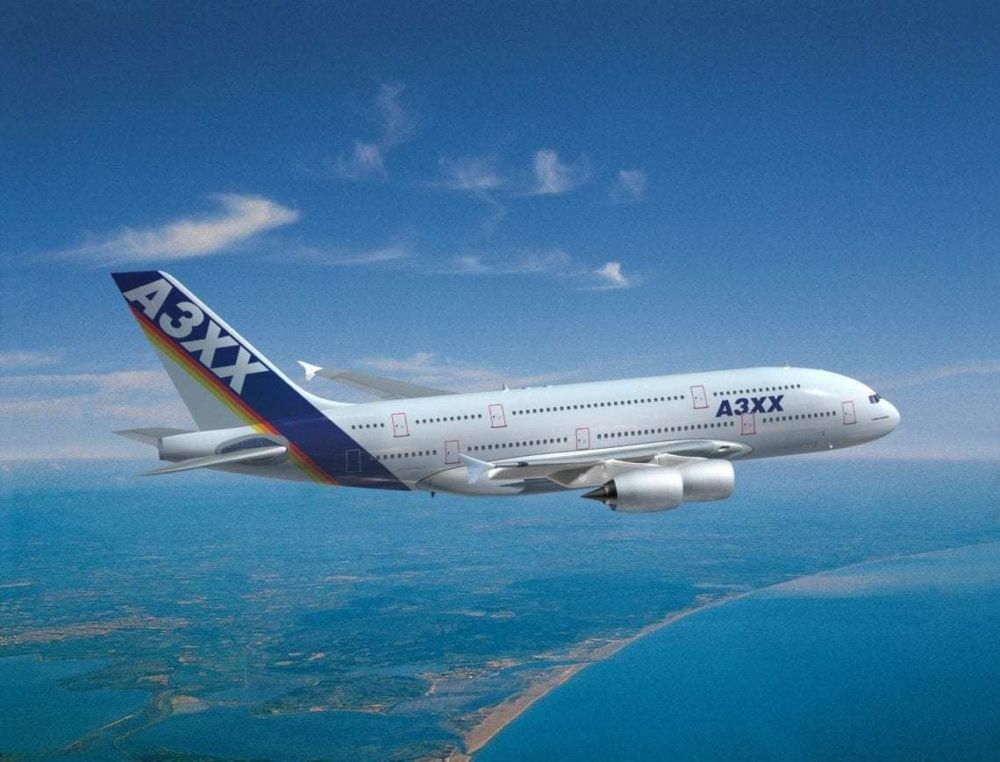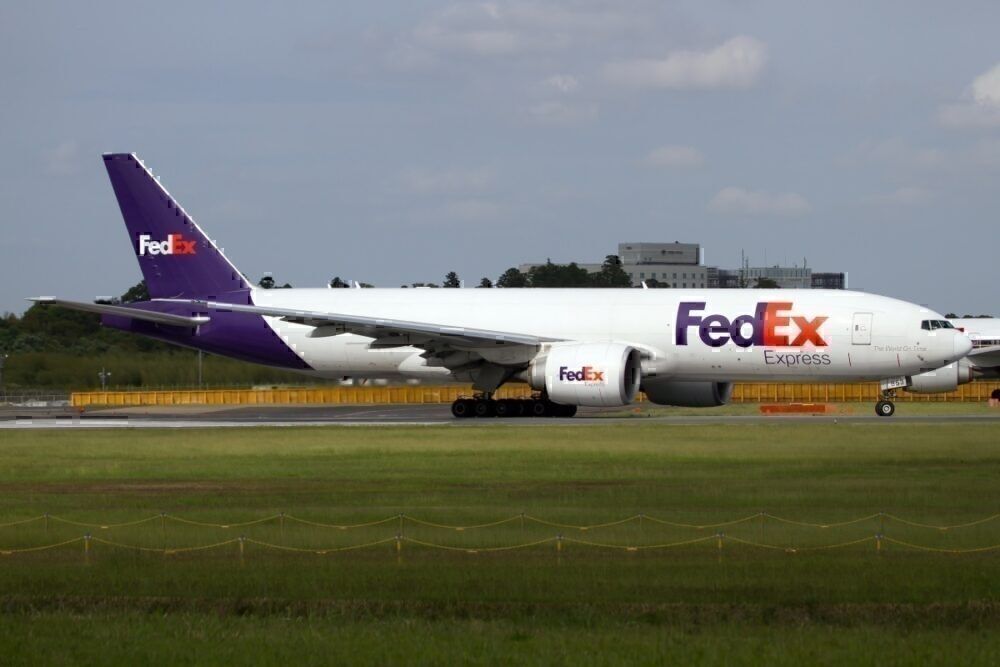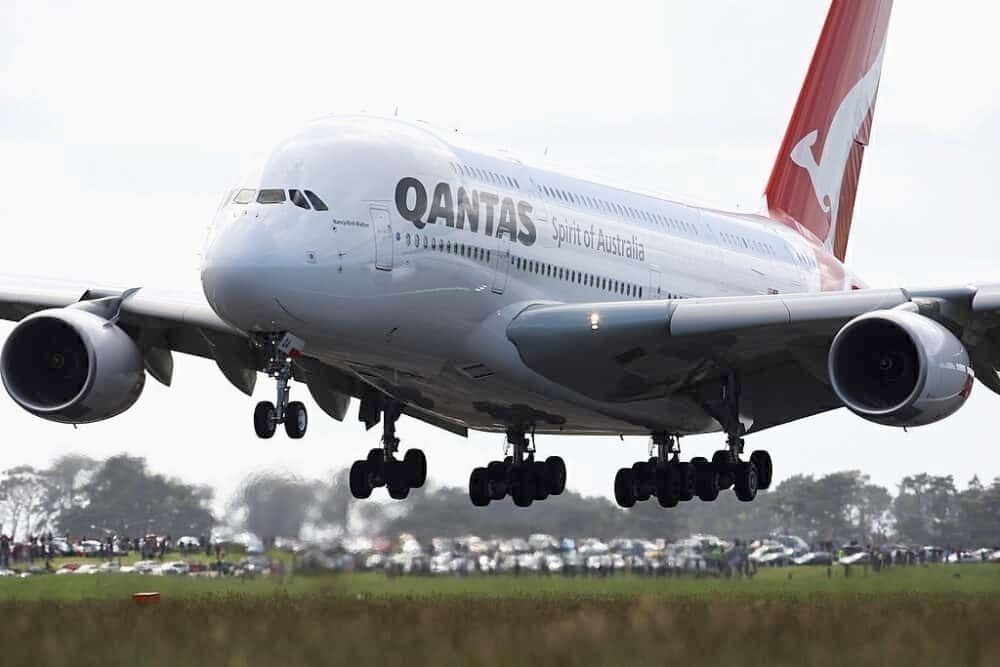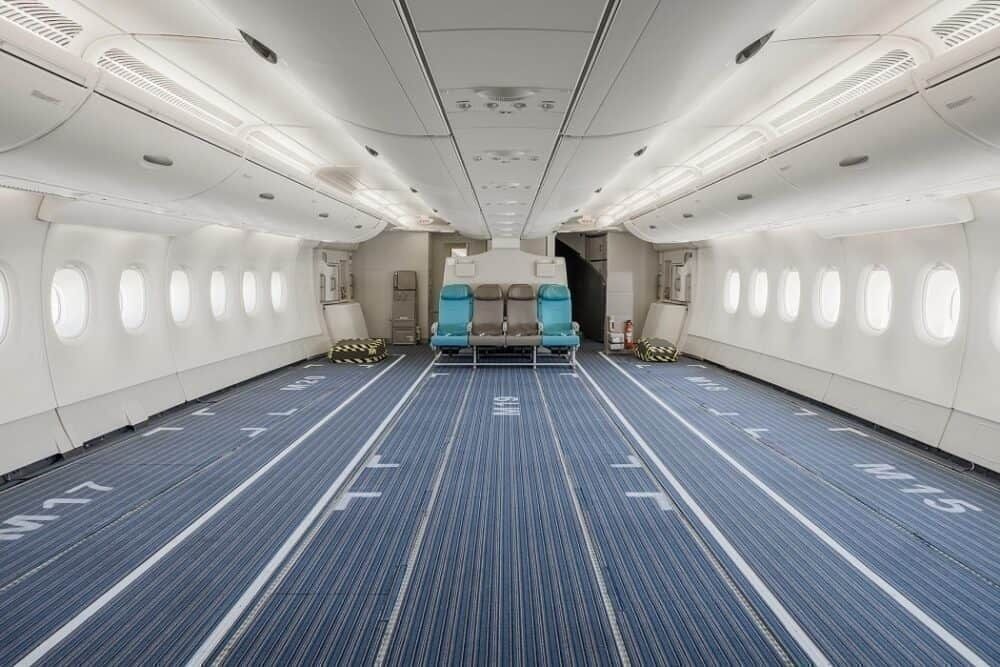The A380 is the biggest commercial passenger aircraft flying today. But it is not the biggest freighter, as a cargo version was never built. One was planned initially and even received orders, but Airbus never built it. This article explores the project, its customers, and why it was canceled.
The A380 Freighter
Airbus announced its intention to develop a high capacity aircraft at the Farnborough Airshow in 1990. It would take on Boeing dominance of the market, promising a 15% lower operating cost than the Boeing 747.
The project was originally known as the A3XX. After consideration of several options (including one based on two A340 fuselages combined), a two-deck aircraft was chosen and became known as the A380.
Stay informed: Sign up for our daily aviation news digest.
Airbus proposed a passenger version and a freighter version, the A380 and the A380F. The freighter version would have used the same fuselage, wings (with additional internal strengthening), and engines as the passenger version. Capacity would have been up to 150 tonnes, and it would offer a range of 10,400 kilometers.
This would have made it the largest commercial cargo plane on offer, apart from the one-off giant Antonov An-225 aircraft. For comparison, the new 747-8F carries 137.7 tonnes with a range of 7,630 nautical miles.
Orders from four airlines
Since its launch in 2001, there were orders placed for 27 A380F aircraft from the following airlines.
- Emirates – 2 aircraft
- FedEx Express – 10 aircraft (and options for 10 more)
- UPS – 10 aircraft (and options for 10 more)
- ILFC (International Lease Finance Corporation) – 5 aircraft
Emirates and ILFC confirmed their orders in 2001, FedEx in 2002, and UPS did not until 2005.
Canceling the freighter orders
None of these orders though even came to be. With delays in the production of the A380, Airbus prioritized the passenger version over the freighter. The delivery dates for freighters kept being delayed, and ultimately all airlines canceled their orders or converted them to passenger A380s.
FedEx and UPS canceled orders in 2006 and 2007. Emirates and ILFC both switched orders to passenger models. Airbus continued to offer the A380F as an option until 2013, but no more orders arrived.
The cancellations did not help Airbus' position in the freighter market. Boeing has long dominated this market with the 777 and 747 freighters. Airbus has had some success with the A340, but the A380 would have given it an excellent chance to grow its place in the market. Looking forward, there is always the possibility of an A350 freighter. Boeing, too, had indicated it might develop a freighter version of the 777X, but this again is unconfirmed.
Not a great design for a freighter
There were further possible problems with the A380F. Although it offered higher cargo capacity than the 747, the increased weight of the A380 would lead to higher operating costs. There was simply too much space to be filled with cargo, and the aircraft would most likely reach its maximum load with empty space remaining.
There were also loading issues. The A380F would not have a lifting nose, and the 747 has. And the upper deck floor would only carry limited weight, possibly leading to slow and more complicated loading.
For further discussion of this, see our article on the cancelation.
Finally being used for freight
The slowdown in aviation in 2020 has brought many changes to airlines and fleet uses. One of the interesting things we have seen is the A380 finally finding itself used to carry just freight.
Hi Fly has converted its A380 for freight use in July 2020. It has removed all the economy seating to allow for more freight (though there are strict limits based on the cabin and floor design).
And Malaysian Airlines has received permission to carry cargo on its passenger A380. This would be without conversion, though, so cargo would travel on seats and in overhead bins.
What do you think of the A380 and its freighter potential? Would it have worked out for airlines? And do you think Airbus will launch an A350 freighter version?

